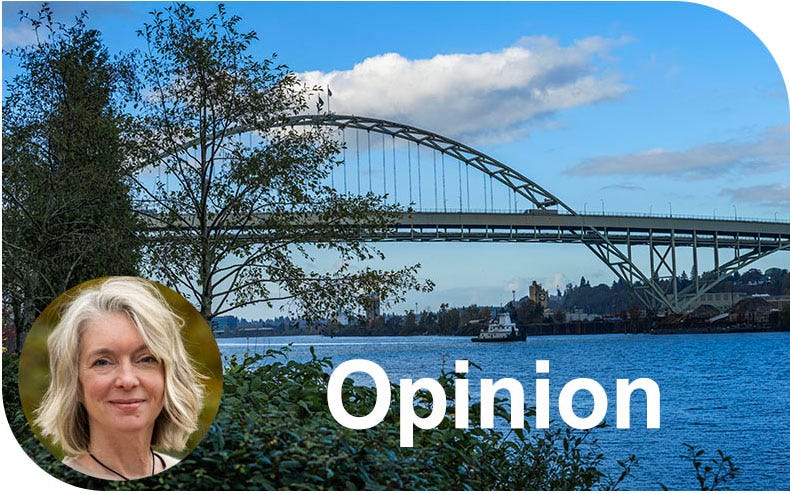Recent camp proposal calls into question the city’s environmental priorities
Some City Council members seem to have forgotten Portland's legacy
The Portland City Council made the right decision by rejecting a recent proposal to cut funding for homeless camp cleanup, and not just for the benefit of our neighborhoods and communities.
The environmental costs of leaving long-term camps have direct repercussions on all of us – humans, plants and animals alike. Homeless camps are a source of pollution hazards like water contamination, air pollution from fires and trash burning, and soil contamination from garbage and hazardous materials. Left unaddressed, accumulated garbage, hypodermic needles and other debris eventually end up in our water sources and rivers, and pose biohazard risks, attracting disease-carrying pests like rats, mosquitos and flies. That’s dangerous for everyone, including homeless people living in those conditions.
At the city, state and federal levels, Portland has invested billions over the years on major environmental cleanup projects. The Big Pipe project designed to prevent sewer overflows into the Willamette and Columbia Slough cost about $1.4 billion to complete. The project was a major effort to improve the health of Portland’s rivers, making them safer for recreation and protecting aquatic life. Why hasn’t waste and trash from homeless camps that wind up in our groundwater, rivers and streams drawn that level of concern?
We used to care deeply about these things. Portlanders may recall in 2014 the city’s controversial decision to drain the Mount Tabor Reservoir, when 38 million gallons of water were discarded, all because one man urinated in it. How far to the other side we’ve gone where programs designed to clean up the ever-increasing number of camps and the waste generated by them was proposed for the chopping block.
Research also proves that trash and pollution beget more of the same. It sends a signal that “no one cares.” When an environment already looks neglected, people feel less concerned about keeping it clean and are more likely to litter themselves. The vicious cycle and environmental “doom loop” continue. According to AI, in controlled experiments in urban areas, researchers found that when an area was already littered or vandalized, people were significantly more likely to engage in other forms of disorder, including theft and additional littering. Certainly, it does a real disservice to civic, community and neighborhood pride and safety.
No doubt litter, waste and debris have untold costs on the environment and create much bigger problems than just neighborhood eyesores. While the city’s decision to reject this shortsighted proposal ought to be lauded, the fact it was even raised should cause alarm bells about what the real priorities of the city council are when it comes to working toward a healthier, cleaner and safer environment in Portland for everyone.





Thank you for writing this! Why is this impact completely absent from legislative discussions?? And especially this: "While the city’s decision to reject this shortsighted proposal ought to be lauded, the fact it was even raised should cause alarm bells about what the real priorities of the city council are..." Yes, this should be causing very loud alarm bells, especially now that we're heading into the next election cycle for D3 & D4 city councilors. Please keep ringing the alarm!
I've been regularly involved in volunteering to clean up homeless camps for several years, and I can tell you it is horrifying to see the garbage and detritus that the homeless leave behind with impunity. Rotting clothes, furniture, broken glass, hot needles, bits of metal/nails and especially PLASTIC. They break things and leave plastic pieces and microtrash everywhere. Even worse, we've cleaned up untold abandoned campfires (and witnessed active campfires) where homeless people are burning plastics and textiles (with synthetic fibers), leaving large globs of melted environmental toxicity behind. The fumes are intolerably toxic, and we've actually been driven from our clean ups twice because the smoke was so acrid and foul.
Kevin Dahlgren has talked about this:
https://open.substack.com/pub/truthonthestreets/p/the-city-of-trash?r=74dqd&utm_campaign=post&utm_medium=web&showWelcomeOnShare
=false
https://open.substack.com/pub/truthonthestreets/p/oregon-progressive-policies-just?r=74dqd&utm_campaign=post&utm_medium=web&showWelcomeOnShare=false
Portlandia spends so much time touting "Green this" and "Green that", but isn't willing to curb the most obvious pollution we can visibly see every day: the trash and garbage caused by unfettered camping.